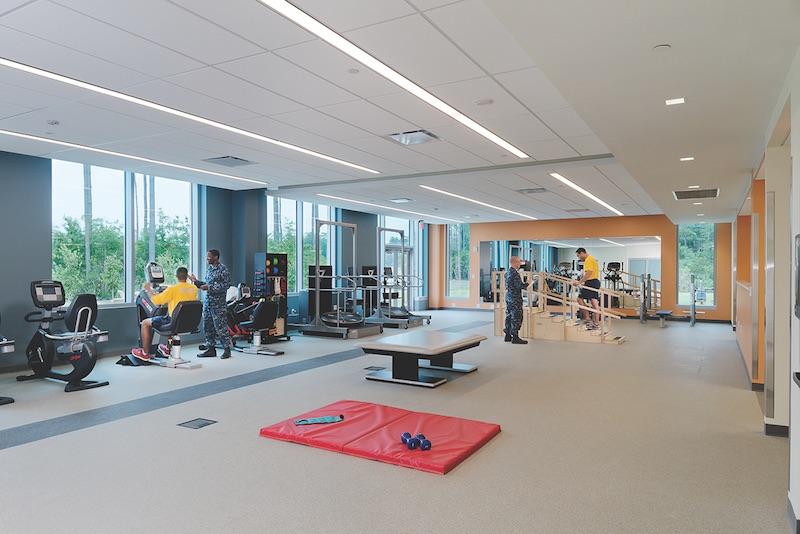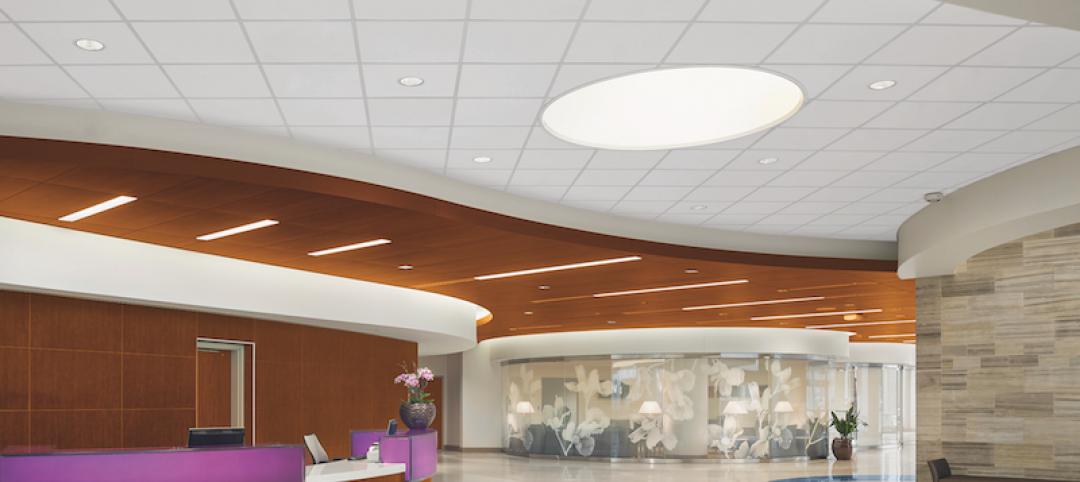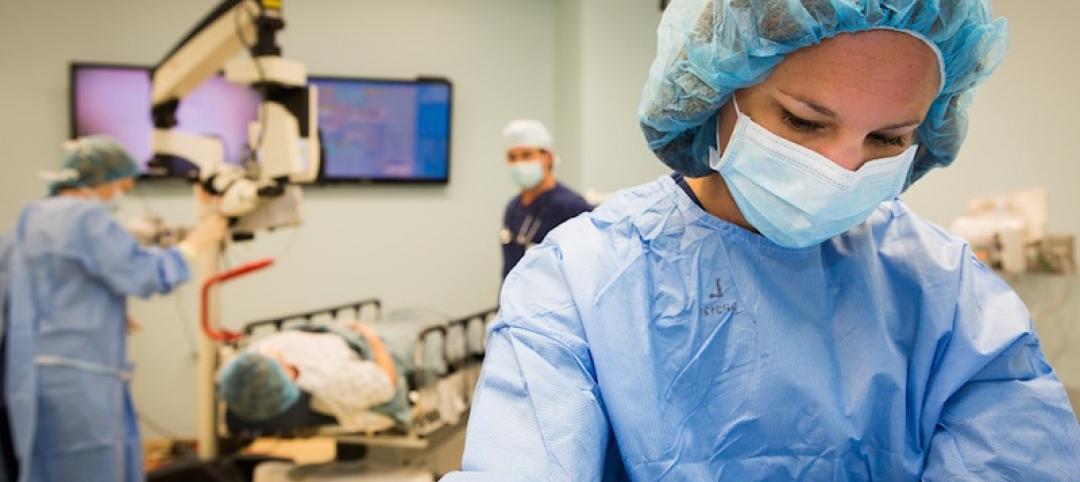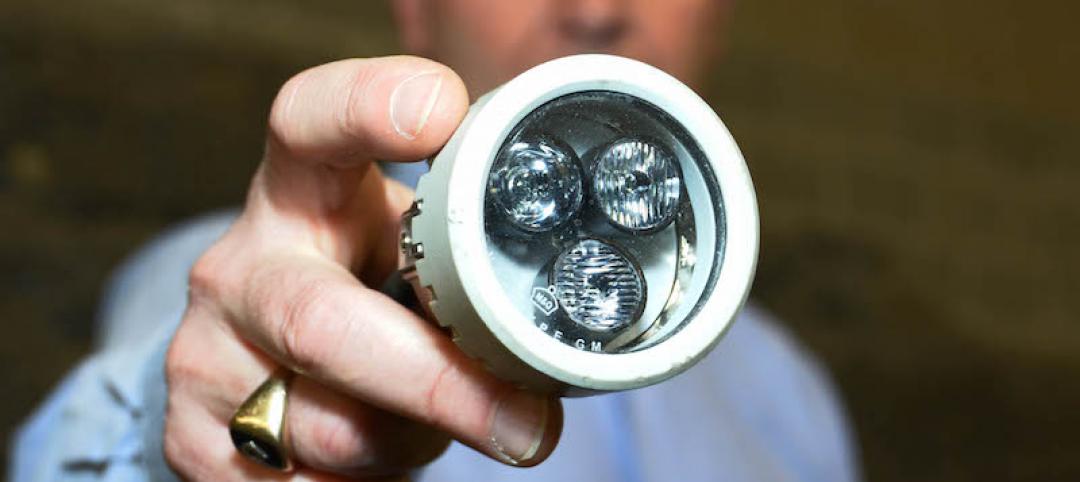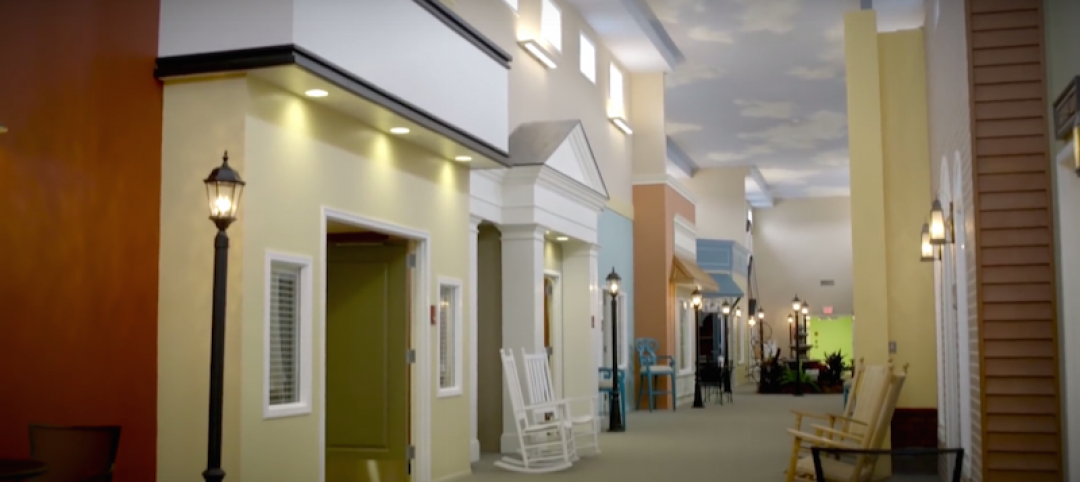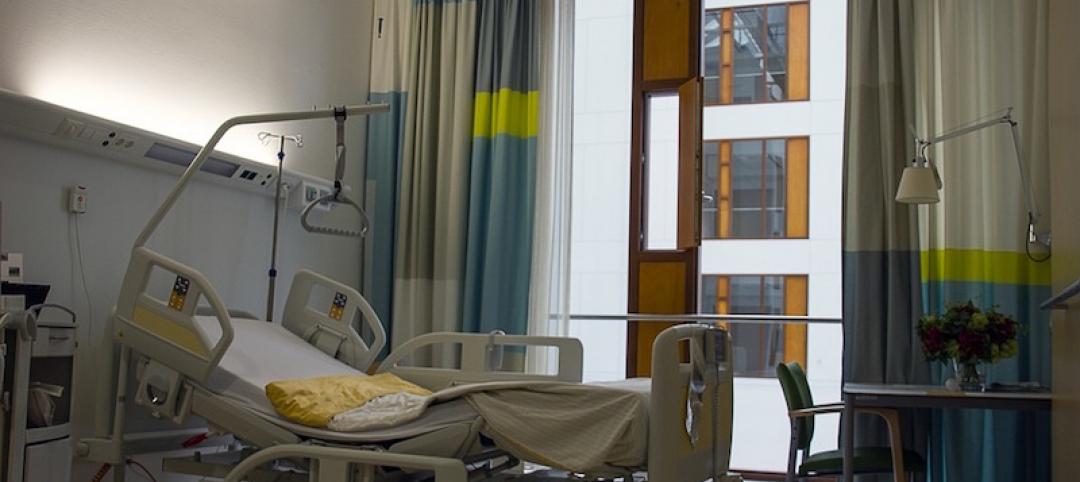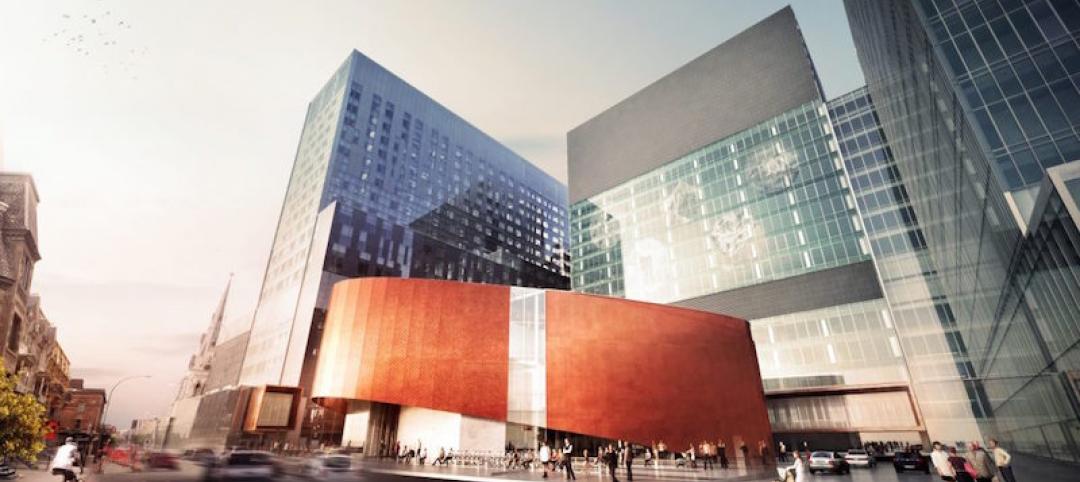Over the past six years, SmithGroup has been working with the Intrepid Fallen Heroes Fund (IFHF) to design and build satellites to the 72,000-sf National Intrepid Center of Excellence (NICoE) in Bethesda, Md., which since 2010 has treated traumatic brain injuries and post-traumatic stress disorders suffered by active-duty military personnel.
To date, seven NICoE Spirit satellite centers—which average 25,000 sf and between $10 million and $12 million in construction costs—have been built on the grounds of Fort Belvoir in Virginia, Camp Lejeune and Fort Bragg in North Carolina, Fort Campbell in Kentucky, Fort Hood in Texas, Joint Base Lewis-McChord in Washington, and Camp Pendleton in California.
Philip Tobey, a Senior Vice President at SmithGroup, says one other NICoE Spirit in design and two others await funding.
The Intrepid Fallen Heroes Fund is led by Arnold Fisher, a Senior Partner with Fisher Brothers, a real estate developer and builder in New York. Originally, he formed the fund to supplement the paltry ($6,000) benefits the government had been paying families of military personnel killed in action. When the government raised its payout to $100,000 per family, IFHF approached the Army Surgeon General to see what else it could do to help active duty military.
See Also: Medical office construction isn’t keeping pace with the aging of America
At that time (2005), 23,000 troops had been wounded in Iraq and Afghanistan, 10,000 of whom sustained injuries that prevented them from returning to duty.
The fund, says Fisher, raised $72 million for the Center for the Intrepid, a 65,000-sf rehabilitation training and research center on five acres at Brooke Army Medical Center near Fort Sam Houston in San Antonio. IFHF was instrumental in assembling the project team for this project, which included SmithGroup (design architect), Syska Hennessy Group (engineering systems design), Cagley & Associates (SE), Garcia & Wright Consulting Engineers (CE), Counsilman Hunsaker (natatorium consultant), Plaza Construction (owner’s rep), and Skanska USA (CM).
IFHF subsequently raised $92 million to build NICoE, which opened on the campus of Walter Reed National Military Medical Center, in Bethesda, Md., The facility has $26 million of imaging equipment, which places it "seven or eight years ahead of civilian research,” says the 85-year-old Fisher.
The Intrepid Fallen Heroes Fund donates the healthcare facilities it builds to the U.S. Department of Defense. Its only stipulation is that it have complete autonomy in managing the projects, which allows it to accelerate the production schedule. The Center for the Intrepid was designed and built in 18 months, and the NICoE Spirits are being completed in 14 months.
Fisher says that speed is of the essence to meet the pressing needs of physically and psychologically damaged troops. “I’m a builder, and I push to get projects done,” he explains. Fisher notes that SmithGroup has been the “perfect partner” because “they understand what we need and the importance of the look of the building” to a patient’s recovery.
Related Stories
Sponsored | Healthcare Facilities | Oct 26, 2016
Rx for noise control at Virginia hospital: Large dose of acoustical ceilings
A myriad of acoustical ceiling solutions aid in patient comfort and recuperation.
Sponsored | Healthcare Facilities | Oct 24, 2016
Cyclotron streamlines isotope production
The 70 MeV, 140-ton cyclotron was manufactured by Ion Beam Applications (IBA) in Belgium.
Industry Research | Oct 20, 2016
New book from HDR explores opportunities for how healthcare organizations can reinvent the patient experience
Delta offers a close look at specific activities and behaviors that can help healthcare providers and caregivers discover revolutionary concepts to help them embrace and thrive in the rapid change that surrounds them.
Lighting | Oct 6, 2016
Healthcare systems lighting their way to savings
There has been a rapid improvement and availability of LED products as primary light sources in most healthcare facility applications.
Healthcare Facilities | Sep 28, 2016
Assisted living facility resembles a quaint American neighborhood
The design is not just meant to be aesthetically pleasing, but can also help patients with dementia and Alzheimer’s.
Healthcare Facilities | Sep 16, 2016
Healthcare architect turned patient: What I learned when admitted to a facility I helped design
Discovering new ways design can—and can’t—improve the patient experience.
Healthcare Facilities | Sep 14, 2016
Details of the largest healthcare construction project in North America revealed by CannonDesign and NEUF architect(e)s
The project will combine three aging hospitals into one complex.
Healthcare Facilities | Sep 7, 2016
The merger of physical healthcare and digital care: Why is it important?
As healthcare costs continue to increase, operators are exploring new delivery models and social platforms to personalize the provision of healthcare services. These companies are pouring resources into this field to create more personalized, secure, and affordable health and wellness options.
Healthcare Facilities | Sep 6, 2016
Chicago Faucets releases white paper: Reducing the risk of HAIs in healthcare facilities
The white paper discusses in detail four options used to mitigate transmission of waterborne bacteria
Healthcare Facilities | Aug 30, 2016
The Program of All-Inclusive Care for the Elderly is making large strides
A typical PACE center is comprised of a fully functioning and equipped primary care clinic, adult day center and rehabilitation therapy gym.


